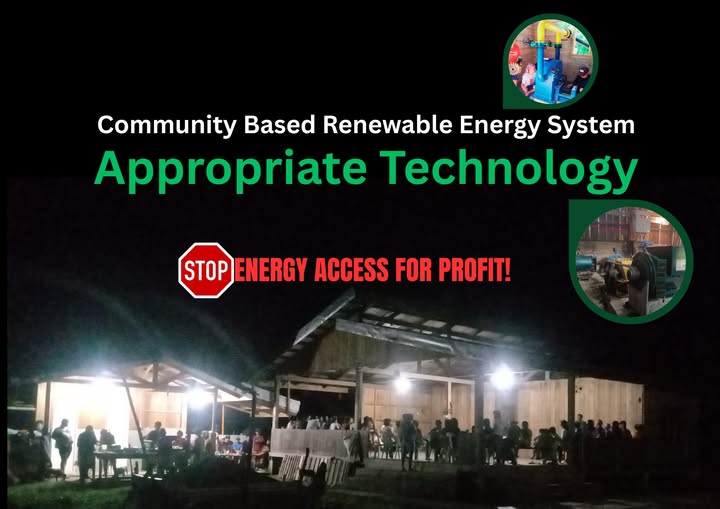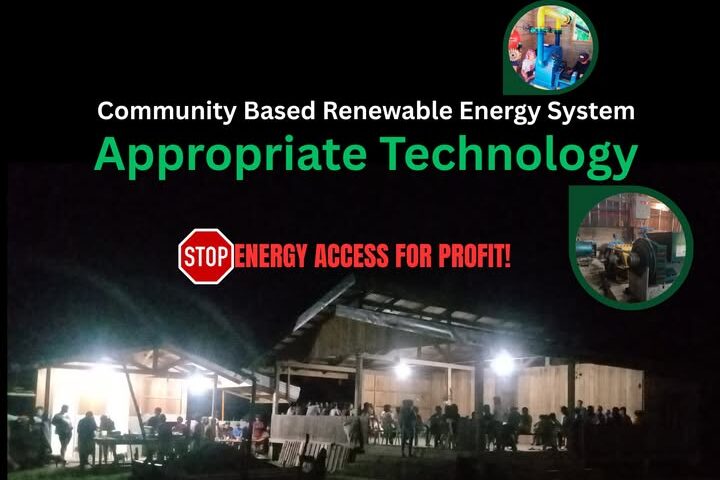
There is no doubt that we support the transition from dirty fuel to clean energy. However, the rush to build a gold mine out of this fuel-blending track—though options for large renewable energy systems may seem laudable—has become socially and environmentally damaging in the unmoderated pursuit of profit. Big dams, solar farms, and offshore wind systems may produce the desired gigawatts of electricity but often fracture the social fabric of indigenous peoples as their lands, lives, and environmental resources are ravaged to make way for these structures. Energy corporations such as Aboitiz, San Miguel Corporation, the Lopez Group, and foreign investors saw financial opportunities without regard for environmental safety, food security, and the rights of indigenous peoples. When profit prevails in these renewable energy investments, it simply changes cloaks and continues operating like the dirty energy businesses they used to be.
Large-scale renewable energy (RE) projects may be part of a broader solution to global warming caused by fossil fuels such as coal and crude oil. However, these often come with greater disadvantages. Big dams displace people, submerge villages, and destroy biodiversity. Similarly, solar farms encroach on food production areas, jeopardizing food security. Current offshore RE systems are targeted for installation in highly diverse and rich marine ecosystems—such as the Verde Island Passage off Batangas—threatening marine biodiversity in the region.
These massive infrastructures are funded either by local capitalists or foreign venture capital investors who have the financial resources, technology, and technical expertise—yet whose main objective is to reap profits at the expense of people and the environment.
There are energy access options that are environmentally sound, safeguard people’s welfare, and maintain the balance of resources within ecosystems. These are community-based renewable energy systems, which for years have made a significant impact by addressing electrification needs in underserved communities. Yet, these decentralized systems have not received adequate policy attention, financial support, or prioritization by the Philippine government.
SIBAT, in its 40 years of promoting and applying appropriate technology, has achieved this. It has developed non-fossil, fuel-based energy generation and access through community-based systems that are owned, managed, and sustained by the communities themselves. The approach is holistic. Its primary pillar is the people’s organization that manages and operates the project. A self-determined tariff system, agreed upon by community members who are trained to manage revenues, ensures sustained electricity use and the creation of sinking funds for operations and maintenance—making these projects long-lasting. SIBAT continues to support these communities by repairing and upgrading systems to ensure 24/7 performance. It also trains selected community members to perform basic troubleshooting and repairs to keep the systems functioning.
At the same time, watershed areas are diligently protected through customary laws governing natural resource use, as communities understand their critical role—especially in maintaining water for hydropower and irrigation. These systems do not require massive dams; rather, they use modest structures to divert water from run-off rivers to power turbines. This ensures that environmental resources are used responsibly, without being destroyed.
SIBAT has demonstrated that, for decades, these R E systems have become integral to the lives of indigenous communities. They are reliable energy sources—easy to manage and operate, while being environmentally sustainable. Lighting homes, churches, clinics, and community infrastructure has had a profound impact on health, education, and livelihoods. With appropriate support through policies, programs, and funding, these systems can go a long way in mitigating the impacts of climate change—especially at the local level. When deployed at scale, they can offset a portion of carbon emissions and help eliminate dependence on fossil-fuel-based electricity generation.
Sadly, the current roadmap for energy access is profit-driven and corporate-led. The country needs to revisit its framework and create a balance—one where a just energy transition occurs, allowing the poor and marginalized to equally share in the benefits through more equitable and sustainable energy solutions. ###
